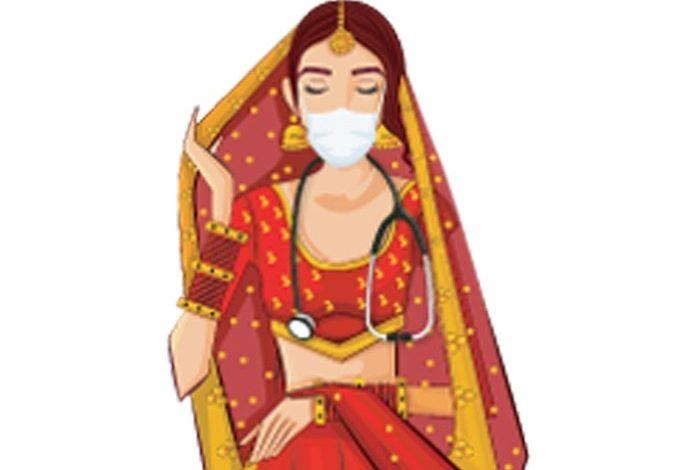(MENAFN- Tribal News Network) Khalida Niaz
Huma, a resident of Kohat, completed her Bachelors in Dental Surgery from Khyber College of Dentistry in 2016 and completed six months house job.
She was happy about the prospects of being able to treat patients; however, all of sudden her family agreed to a marriage proposal for her, thus putting a lid over her dream of becoming a dental surgeon.
Huma told TNN that she was enthusiastic about medicine from childhood and it was driver which propelled her to study medicine.“I did not know I will lose sight of my destination after getting so close,” she said.
Human said that her in-laws informed her parents that they do not need her salary and she does not need to work.“How to make them understand that not everyone works for money and sometimes people do work for their satisfaction,” she said.
Huma said that sometimes female are also committed to work to contribute for the society.
She said that many a females are not comfortable to go to a male doctor seeking treatment and also keeping social values in view, she wanted to be doctor and treat females.
“I failed to do so and will always regret this,” she said
Missing women doctorsShe said that many girls study medicine; however, do not join the field, mostly due to opposition of family or in-laws.
Huma said that at one hand Pakistan was facing shortage of women doctors while on the other hand if trained professionals stay away from the practice of medicine; it will also discourage many other who want to study medicine. In addition to this, she said that it will also create problems seeking healthcare as many males do not allow their women to approach male doctors for treatment.
“If there are no female doctors, then, who is going to treatment these females,” she said.
Zeenat, 50 and a resident of Nowshera district agrees with Huma. She said that majority of the males in the rural areas do not allow their females to approach a male doctor while there were no female doctors around.
Zeenat said that she self-medicated in case of falling ill as she was not allowed to go to a male doctor.
“I am suffering from kidney complications due to self-medications,” she said.
On the other hand, Huma is not the only doctor, who stopped pursuing to be a doctor due to problems of her marital life but many other women were also facing the same predicament.
Dr Mehnaz did her Member of the College of Physicians and Surgeons of Pakistan (MCPS) in gynecology after MBBS and started working at government hospital; however, she had to quit her job after facing several problems at her workplace. After problems started at her workplace, her family asked her to quit her job and focus on children.
This forced her to quit her job.
Dr Saima Abid, founder of Public Health Association KP and Associate Professor at the Pak International Medical College, said that women doctors must practice medicine.“Even parents teach their children to join field after studies instead of sitting at homes,” Dr Saima said.
She said that women doctor can take good care of female patients and also financial support their families.“They even could become anchor for their families in distressing times,” she said.
Only 20pc of female doctor practice medicineReferring to a news report, she said that there were 80 percent females in medical colleges; however, only 20 percent of them work in field.
Dr Saima said that after marriages most of the female doctors start taking care of their children while others are not allowed to work by in-laws.
She said that absence of women from medical profession will hurt other women as female doctors can take good care of ailing women.
It is worth mentioning here that the United Nations Research Institute for Social Development (UNRISED) has published a report titled Crises of Inequality: Shifting Power for a New Eco-Social Contract, to push for gender equality in health, education and other sectors with gender discrimination.
Ensuring safe work spacesAmjad Ali, dentist said that a large number of females preferred to study medicines. He said that on their way to become a doctor, females overcome many obstacles.
However, said that after overcoming these obstacles, these women achieve a position in society, they faced other problems coupled with family issues.“Sometimes they are posted into remote areas where they do not consider themselves safe while other times, they face sexual harassment,” he said.
He said that females do not know more about harassment and fear opening up, thinking they will be considered responsible for the problems.
Huma and Dr Amjad said that besides raising awareness about the importance of medical profession, it was also imperative to provide safe spaces for women so that they can work in field to treat other women.
Hits: 6




















Comments
No comment